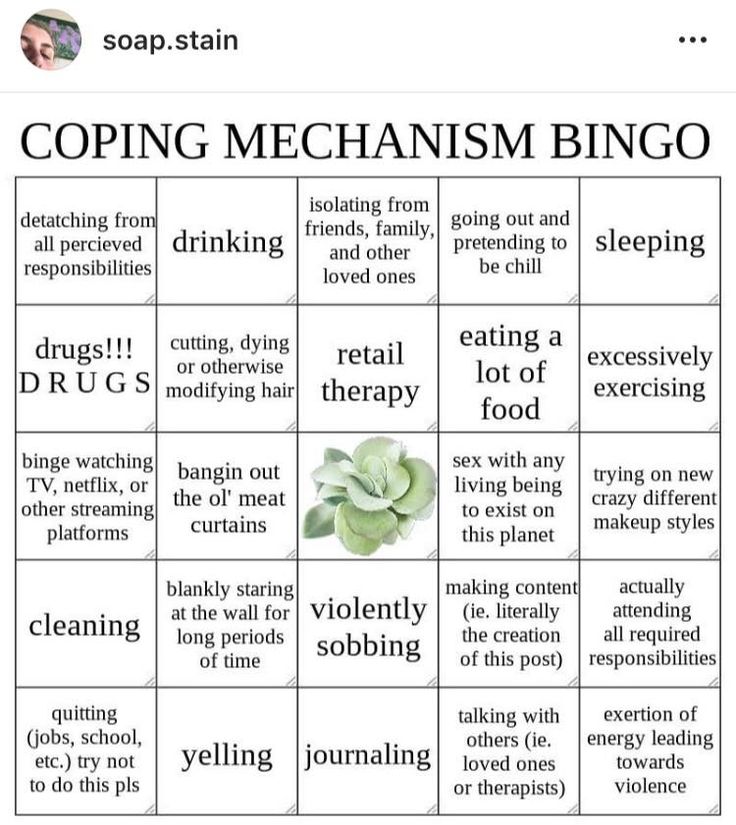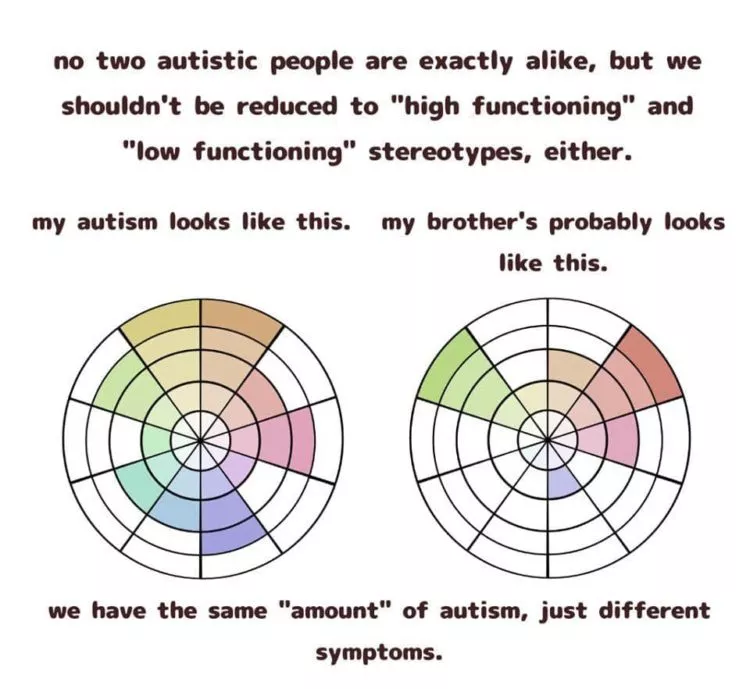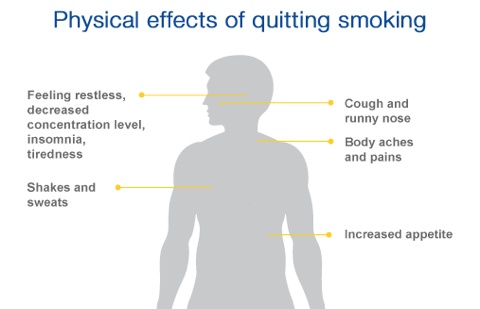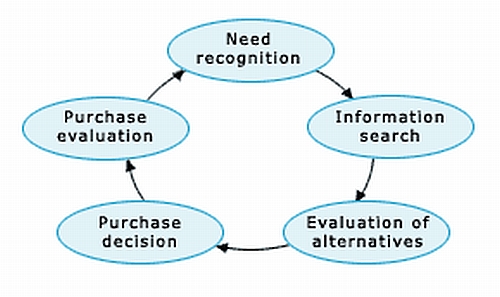Managing anger and anxiety
10 Tips for Dealing with Anxiety & Anger
Feeling angry and anxious? Me too! It’s easy to let the feelings of anger and anxiety consume you to the point that you start spinning out of control. When you start to feel either of these feelings, you can use several techniques to stop the cycle. Here are my top 10 tips for dealing with anxiety and anger.
10 Tips for Dealing with Anxiety and Anger
1. Hit the Pause Button
Just put a pause button on the situation. Take a moment to stop and reflect. Do this as soon as you start to feel angry or anxious, that way you can control your feelings before they escalate out of control.
2. Practice Breathing Techniques
When you’re feeling angry or anxious your breathing can become irregular, which will make your feelings of anxiety and anger even worse. Remind yourself to take long deep breaths in and out to start calming down. One breathing technique you can use is called box breathing – and it’s what the Navy Seals use to calm down too!
3. Consider Your Options
Step back and walk away for a second. Is it necessary that I participate in this situation at this very moment? Can I give myself a break and come back at a better time? Can I let someone know that I need time to process the situation? It is okay to walk away from situation(s) that are causing you to feel anxious and/or angry. It is always better to walk away than to continue causing more stress on yourself, adding to the anxiety and/or anger.
4. Process the situation
What’s going on? Why am I feeling anxious or angry? When you can identify the what and the why, you are able to evaluate what’s upsetting you and start thinking of solutions. When we’re overwhelmed it can be easy to misdirect anger. If we give ourselves time to identify what is the true cause of our anger and anxiety we can treat ourselves and the people around us with more care.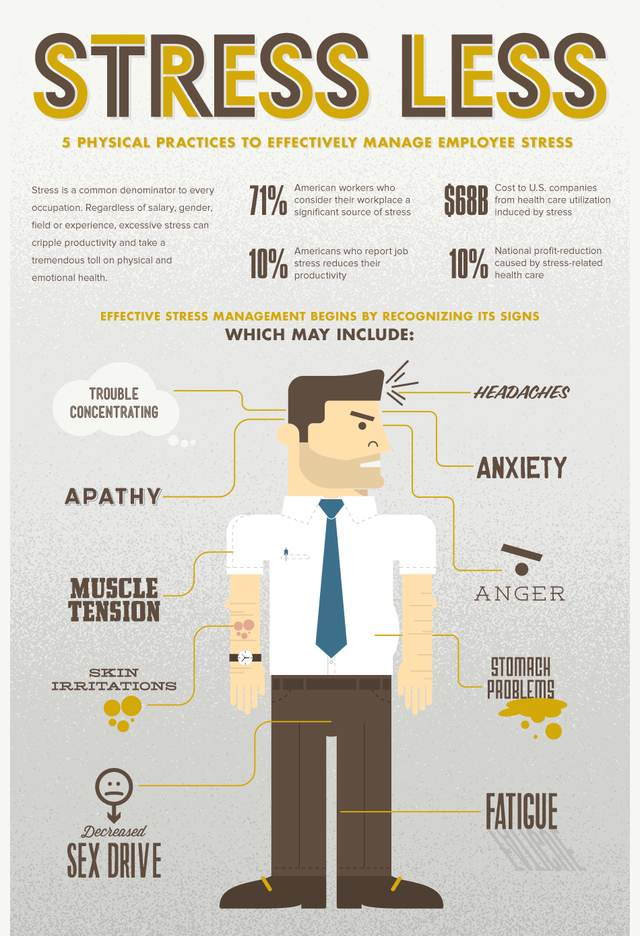
5. Assess the situation
Think “what can I do to help myself right now in this moment?”. Sometimes you will be able to think of things to change the situation right away, other times you may not have a good solution available. Either way, thinking through this process will help prepare you to make a change or accept that you need to adapt to the situation (or leave the situation).
6. Write down your thoughts and/or solutions
There is always a bright light at the end of the tunnel, but it can be very hard to see when you feel anxious or angry. Writing and journaling can help you process your feelings in a healthy, constructive way. The next time you are angry or upset, try writing down answers to the following questions:
- Why am I angry / anxious?
- Can I do anything to change the situation?
- Can someone help me in this situation?
- Where can I find the positive in this situation?
7. Talk to someone you trust
Talking to someone you trust is also a great way to process your feelings.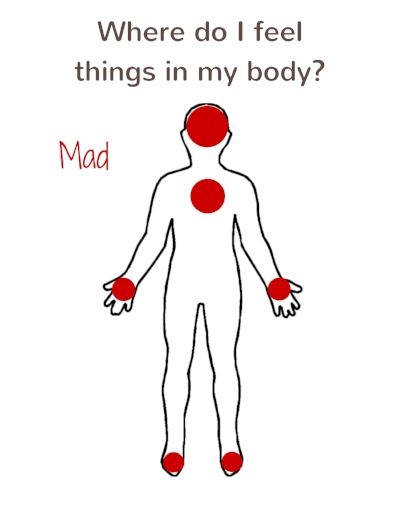 When we are angry or anxious, it can be easy to hold onto bad feelings. Those feelings can consume us if we don’t take time to process them. Talk to someone you trust – tell them what you’re going through and why the situation(s) is making your feel angry or anxious. They may have advice for you, but mostly, it is important that they listen and you feel heard.
When we are angry or anxious, it can be easy to hold onto bad feelings. Those feelings can consume us if we don’t take time to process them. Talk to someone you trust – tell them what you’re going through and why the situation(s) is making your feel angry or anxious. They may have advice for you, but mostly, it is important that they listen and you feel heard.
8. Go to Your Happy Place
A great way to break the mental cycle of thoughts that accompany anger and anxiety is by envisioning your happy place. Think about the things you like to do, people you love to see, and places you like to go. This can help you take a break from your current situation, and will also help you put things into perspective. It may help you see that, while this current moment is tough, there is happiness all around.
9. Listen to music
While escaping to your happy place can help put things into perspective, it’s also important to remember that you are allowed to have feelings! There is a reason you started feeling angry or anxious and it is okay to process those feelings in a safe way. Listening to music when you are angry or anxious can help you get some of that energy out. When I am angry, I listen to music that makes me laugh or allows me to “sing” (or I guess yell). When I am feeling anxious, I put some calmer music on and just allow myself to feel. Allow yourself to express yourself, feel it, and let it go!
Listening to music when you are angry or anxious can help you get some of that energy out. When I am angry, I listen to music that makes me laugh or allows me to “sing” (or I guess yell). When I am feeling anxious, I put some calmer music on and just allow myself to feel. Allow yourself to express yourself, feel it, and let it go!
10. Re-evaluate
Take as much time as you need to get centered when you start feeling angry or anxious. Ask yourself “How am I feeling now? Am I ready to go back?”. If not, give yourself more time and walk through these steps again. And remember, you can always call a help line or seek professional help. You are important and your wellbeing should be your first priority.
I hope these tips help you next time you are feeling angry or anxious. Everyone is different and processes emotions uniquely, so I would encourage you to add to this list and come up with a “go-to” list that you can tap into whenever you are feeling overwhelmed.
Therapy & Counseling in Colorado
Therapy and counseling are great ways to help manage your anger and anxiety.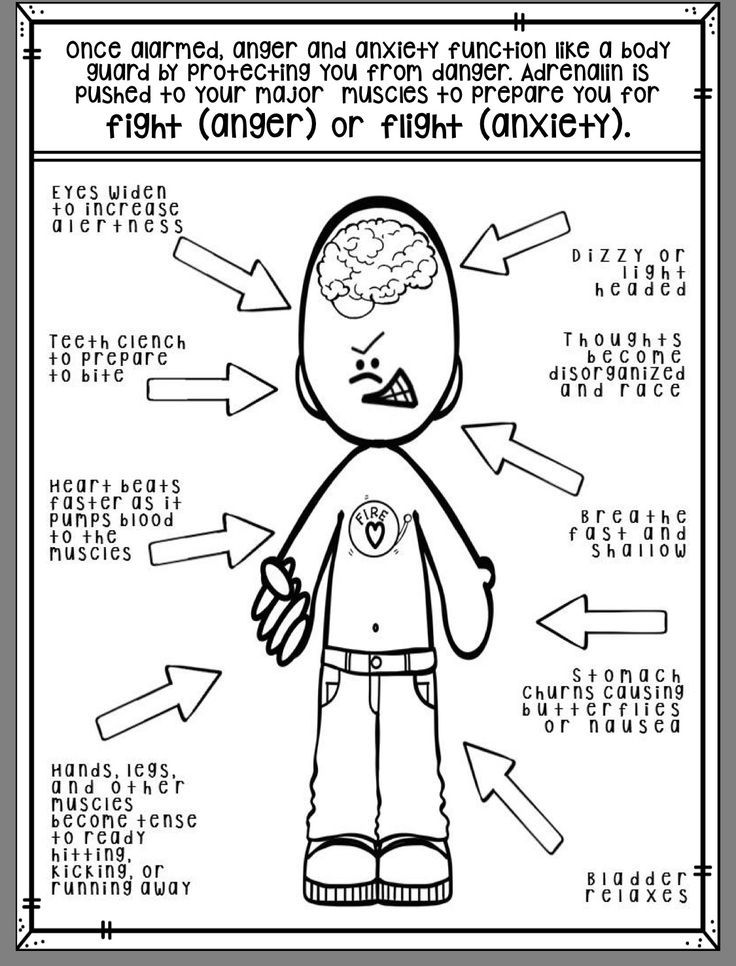 Mind Springs Health offers outpatient therapy and counseling across the western slope of Colorado, and getting started with services is easy. We also offer inpatient psychiatric hospitalization at West Springs Hospital.
Mind Springs Health offers outpatient therapy and counseling across the western slope of Colorado, and getting started with services is easy. We also offer inpatient psychiatric hospitalization at West Springs Hospital.
Make the First Appointment
—-
Molly Spomer was previously a patient at West Springs and now is a valued staff member at the Hospital. She posts regularly about life and dealing with mental illness from her insider perspective.
How To Control Your Temper
Written by WebMD Editorial Contributors
In this Article
- What Are the Dangers of Suppressed Anger?
- What Steps Can I Take to Help Manage My Anger?
- What Else Can I Do to Deal With My Anger in a Healthy Way?
Anger is a very powerful emotion that can stem from feelings of frustration, hurt, annoyance, or disappointment. It is a normal human emotion that can range from slight irritation to strong rage.
Anger can be harmful or helpful, depending upon how it is expressed. Knowing how to recognize and express anger in appropriate ways can help people to reach goals, handle emergencies, and solve problems. However, problems can occur if people fail to recognize and understand their anger.
Knowing how to recognize and express anger in appropriate ways can help people to reach goals, handle emergencies, and solve problems. However, problems can occur if people fail to recognize and understand their anger.
What Are the Dangers of Suppressed Anger?
Suppressed, unexpressed anger can be an underlying cause of anxiety and depression. Anger that is not appropriately expressed can disrupt relationships, affect thinking and behavior patterns, and create a variety of physical problems. Chronic (long-term) anger has been linked to health issues such as high blood pressure, heart problems, headaches, skin disorders, and digestive problems. In addition, poorly managed anger can be linked to problems such as alcohol and substance abuse, crime, emotional and physical abuse, and other violent behavior.
What Steps Can I Take to Help Manage My Anger?
- When you start feeling angry, try deep breathing, positive self-talk, or stopping your angry thoughts. Breathe deeply from your diaphragm.
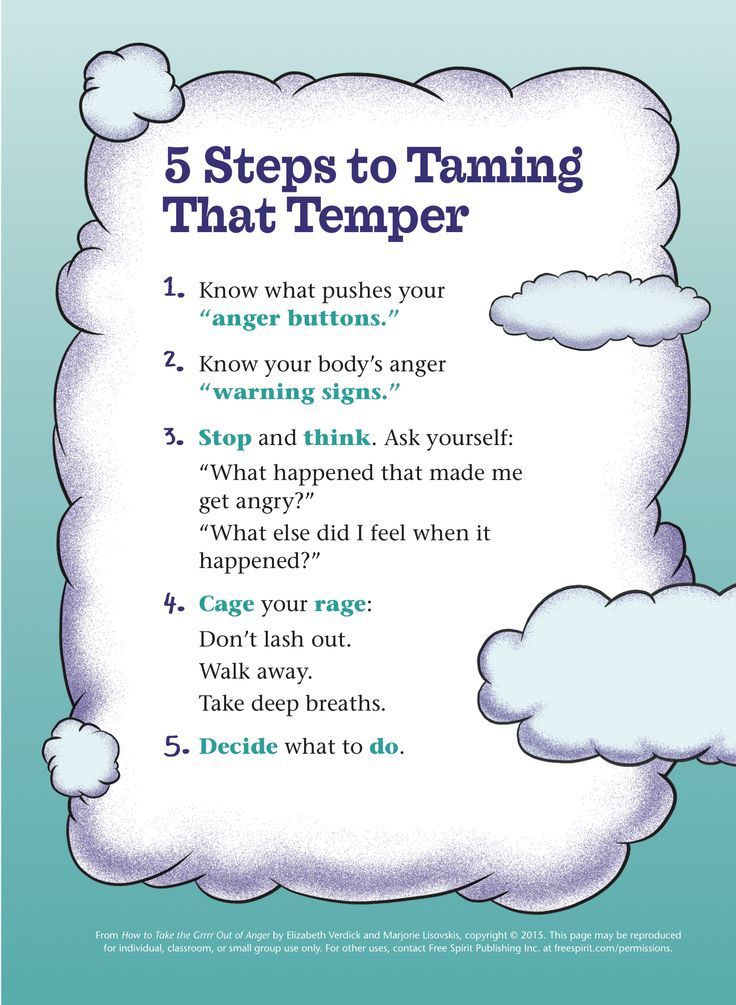 Slowly repeat a calm word or phrase such as "relax" or "take it easy." Repeat it to yourself while breathing deeply until the anger subsides.
Slowly repeat a calm word or phrase such as "relax" or "take it easy." Repeat it to yourself while breathing deeply until the anger subsides. - Avoid alcohol or illicit drugs that can make you more likely to act on angry feelings impulsively.
- Although expressing anger is better than keeping it in, anger should be expressed in an appropriate way. Frequent outbursts of anger are often counterproductive and cause problems in relationships with others. Anger outbursts are also stressful to your nervous and cardiovascular systems and can make health problems worse. Learning how to use assertiveness is the healthy way to express your feelings, needs, and preferences. Being assertive can be used in place of using anger in these situations.
- Seek out the support of others. Talk through your feelings and try to work on changing your behaviors.
- If you have trouble realizing when you are having angry thoughts, keep a log of when you feel angry and try to find the triggers.

- Try to gain a different perspective by putting yourself in another's place.
- Learn how to laugh at yourself and see humor in situations.
- Practice good listening skills. Listening can help improve communication and can facilitate trusting feelings between people. This trust can help you deal with potentially hostile emotions.
- Learn to assert yourself, expressing your feelings calmly and directly without becoming defensive, hostile, or emotionally charged. Consult self-help books on assertiveness or seek help from a professional therapist to learn how to use assertiveness and anger management skills.
What Else Can I Do to Deal With My Anger in a Healthy Way?
If you believe that your anger is out of control and is having a negative effect on your life and relationships, seek the help of a mental health professional. A psychologist or other licensed mental health professional can work with you to better understand the causes behind anger and develop techniques for changing your thinking and your behavior.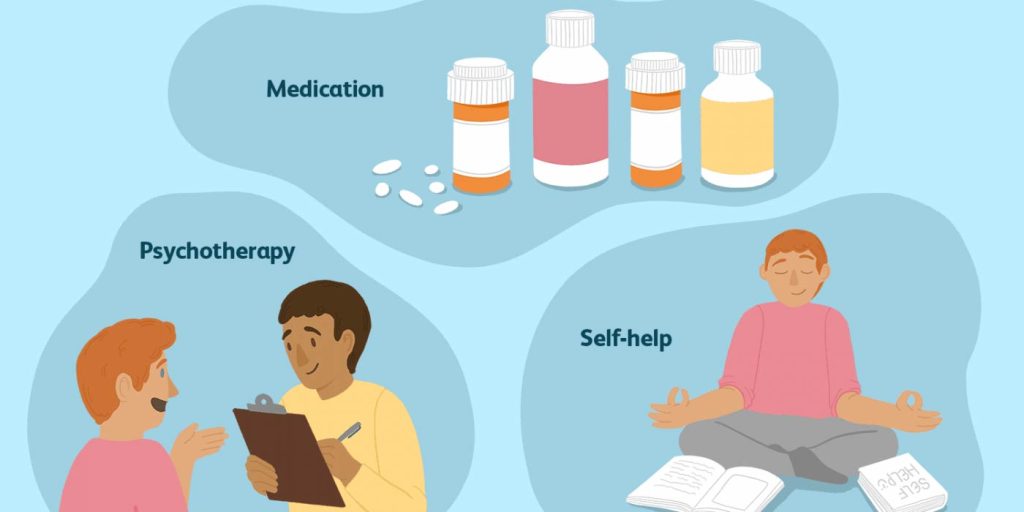 A professional can help you to deal with your anger in an appropriate way. Choose your therapist carefully and make sure to seek treatment from a professional who is trained to teach anger management and assertiveness skills.
A professional can help you to deal with your anger in an appropriate way. Choose your therapist carefully and make sure to seek treatment from a professional who is trained to teach anger management and assertiveness skills.
Anger management: a selection of useful materials
I want to destroy everything, break, scream, fail on the spot! We think that such emotional states from time to time overcome almost everyone, because sometimes we all don’t like something in the behavior of others or in general. And such “dislikes” can sometimes reach the point of absurdity, turning into anger. You need to be able to work with this state, because the ability to manage anger and control emotions allows you to calm down yourself, not to break firewood, and to maintain relationships with people. In this collection of materials, we will tell you how to control your emotions and extinguish outbursts of anger, i.e. We will introduce you to the basics of psychoregulation.
1
Some people think that shouting, getting angry, showing rage and showing anger is quite justified, because you need to somehow express your displeasure, make others respect us, convey your thoughts in an aggressive form, if it doesn’t work out otherwise. However, anger and irritation, especially when they are uncontrolled, in most cases distort the perception of things, prevent us from finding a common language with people, become a barrier to success, harm relationships, and negatively affect how others perceive us. Simply put, anger, like any negative emotions and manifestations, must be learned to be controlled. And in this article you will learn how to do it. Read more…
However, anger and irritation, especially when they are uncontrolled, in most cases distort the perception of things, prevent us from finding a common language with people, become a barrier to success, harm relationships, and negatively affect how others perceive us. Simply put, anger, like any negative emotions and manifestations, must be learned to be controlled. And in this article you will learn how to do it. Read more…
2
We all experience anger or anger from time to time. Some psychologists even argue that this is an absolutely normal process and should not be interfered with. But what if your temper tantrums are too frequent and your life, health, and relationships suffer as a result? Psychologist William Smith was convinced that anger is a transient emotion that occurs after prolonged irritability and leads to anger and a state of affect. Anger is one of the most common emotions, and we can't even imagine the extent of the problem. In this article, we present 12 strategies that will help you get your nervous system in order.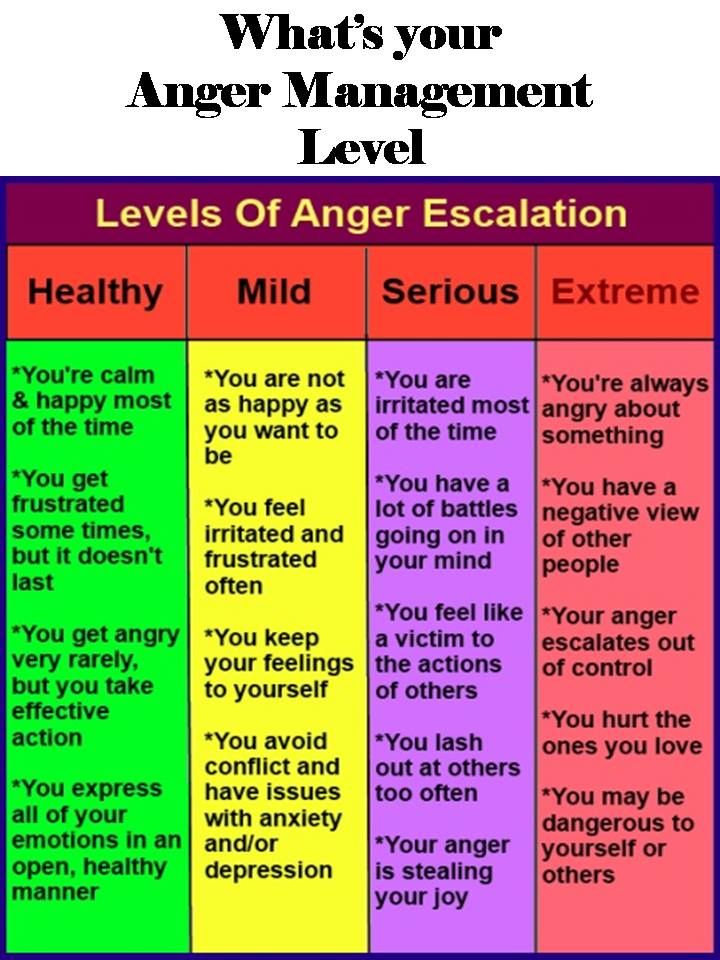 Read more…
Read more…
3
Anger and anger rarely get what we want. But this does not stop us from showing them, often in cases where they are inappropriate. Although it is necessary to get rid of them - both mentally and physiologically, they do not benefit us. The main causes of anger and anger include injustice, a sense of loss, guilt, pain experienced, and concentration on the negative. In this article, we will talk in detail about each of them and offer effective recommendations for overcoming anger. Read more…
4
It's no secret that our life is full of stress, pressure, dissatisfaction from the fact that something is not going the way we would like. In response to circumstances such as reaction, there is often a feeling of irritation, anger, which can turn into aggressive behavior. It is destructive to relationships, to health, to valuables, to anything that might be important. But we can’t just take and remove anger from our lives, from the lives of other people, ban or something like that.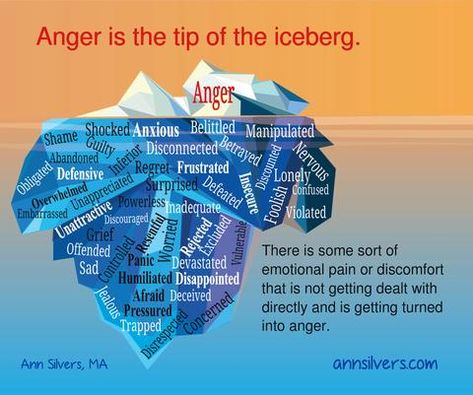 She's not going anywhere from this. Therefore, the first and most important step towards overcoming anger will be the study of its mechanisms and characteristics as a phenomenon. Read more…
She's not going anywhere from this. Therefore, the first and most important step towards overcoming anger will be the study of its mechanisms and characteristics as a phenomenon. Read more…
5
Anger can be seen as a reaction to protect something of value. A person experiences irritation, anger, rage, gets angry when he subjectively experiences a threat to what is important to him. It can also be said that ignoring or accumulating anger are not very good ways to get around this emotional state, because. in the end, it can become destructive to relationships, health (psychosomatics arises), everything that is valuable. What, then, should be done so that, while protecting one important thing, one does not destroy another? We will deal with the answer to such a serious question in the presented article. Read more…
6
You have probably noticed that when you consciously try to control your emotions and reactions, there are no special difficulties with this. But unconsciousness leads to failure.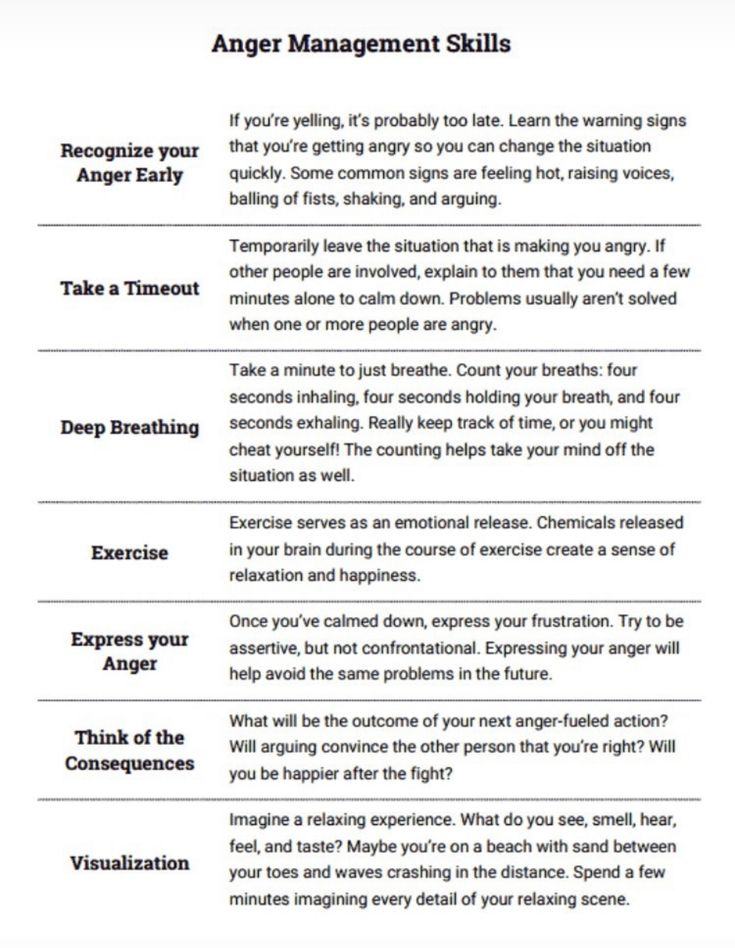 Therefore, it is important to learn how to manage emotions and increase self-regulation, make it habitual. This will allow you to establish a trusting relationship with any person, make much fewer mistakes, and also save a huge amount of time and money. A person who develops self-regulation is able to capture feedback in any situation, stop feeling sorry for himself, and even learn to manage a team of people. Here are eight strategies for self-regulation and how to implement them in your life. Read more…
Therefore, it is important to learn how to manage emotions and increase self-regulation, make it habitual. This will allow you to establish a trusting relationship with any person, make much fewer mistakes, and also save a huge amount of time and money. A person who develops self-regulation is able to capture feedback in any situation, stop feeling sorry for himself, and even learn to manage a team of people. Here are eight strategies for self-regulation and how to implement them in your life. Read more…
7
Any person would like to learn how to change their emotional state in order not to depend on mood swings, not to feel oppressed, to build normal communication with others. We all make some attempt to change our mood: sometimes it works, sometimes it doesn't. There are two ways that the famous motivator Tony Robbins brings to our attention: concentration and physiology. In this article, we will talk about how you can quickly and even effortlessly change your state and stop experiencing negative emotions at a particular point in time. Read more…
Read more…
8
Everyone has been in stressful situations. What did you feel at such moments? How much were you willing to give to end this nightmare? But you don’t need to give anything away, it’s enough to get acquainted with the basic techniques of self-soothing (or master psychoregulation) and learn how to apply them. These techniques include creating a barrier, distraction, rationalization, visualization, and some others. We will talk about them in this article. We think that even the considered techniques are more than enough to learn how to cope with stress and anger at least at the initial level. Read more…
9
Think about it and tell yourself honestly how stressed you are and how well you deal with it. The identification of such symptoms as fatigue at the beginning of the working day, irritation, impatience, insomnia, anxiety over any trifles, anxiety in general will help clarify the answer. How often do you hear from friends and relatives the phrase: "It's time for you to relax and unwind", but do not react to such remarks in any way? If you easily recognize yourself in the previous sentences, it's time to learn how to relieve tension through relaxation exercises.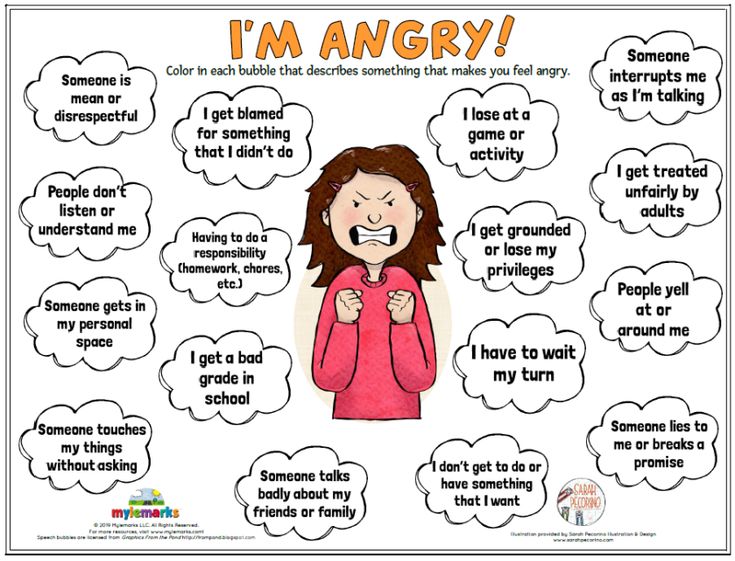 Read more…
Read more…
10
In this online program in just 6 weeks, you will learn how to cope with stress at work and school, difficult relationships in a team, anxiety and fear of important events, apathy, difficulty taking the first step and procrastination. For you, we have collected scientifically and practically substantiated techniques and presented them precisely from the point of view of real application in life, and at the same time we tried to give the necessary minimum of theory and more games, tests, exercises that will allow not only to gain knowledge, but also to develop the necessary skills. Learn more…
The ability to manage oneself is often one of the most laborious to master. But at the same time, it makes life and self-knowledge a very interesting and exciting process. We wish you to experience it for yourself and, of course, we wish you success!
Key words:1 Psychoregulation
How to learn to control anger | PSYCHOLOGIES
12,023
Know Yourself
Not everyone can handle this reaction to external stimuli: we have not been taught this.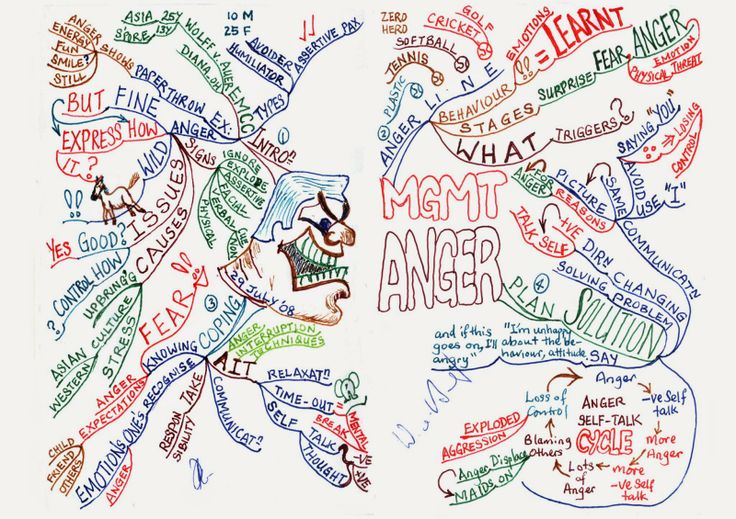 Remember: when you were angry at something as a child, your parents sent you to your room to "recover yourself." Bottom line: many do not even know how to recognize this emotion and understand the scale of the disaster only when the situation gets out of control.
Remember: when you were angry at something as a child, your parents sent you to your room to "recover yourself." Bottom line: many do not even know how to recognize this emotion and understand the scale of the disaster only when the situation gets out of control.
“We get angry when someone or something goes against our values, beliefs, and attitudes,” explains psychologist Mark Pistorio, author of The Wisdom of Our Anger. Anger is a weapon that helps both defend and attack. The reaction starts in the body: the cheeks turn red, the blood pressure rises, the heart beats faster, the muscles tense up. You need to be more attentive to these signals and, when they appear, try to calm down, not to speak or do anything. Amid anger, our higher intellectual functions "fall asleep" - we momentarily lose access to our mind and logic.
Double-edged emotion
Sometimes anger is perceived positively and even encouraged. “This happens when it helps to stand up to injustice, rally against a common enemy, or defend certain values,” says sociologist Eric Gagnon, author of Outbursts: Images of Anger, in which he explores attitudes towards this emotion in Western culture.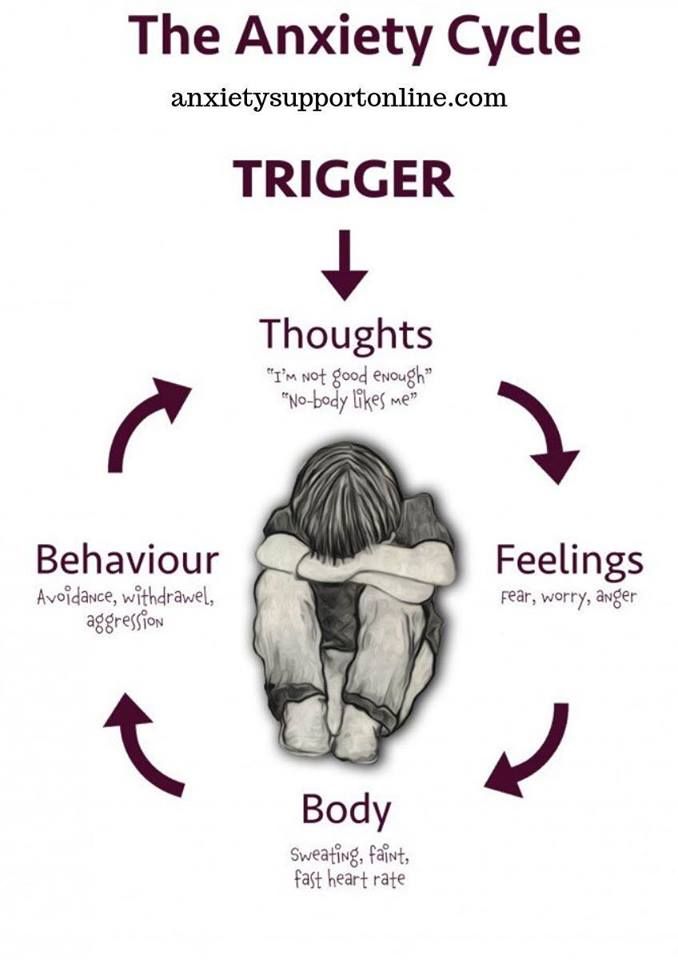
But in addition to admiration, anger can cause fear, frustration, frustration, and an even stronger response. How others perceive an outburst of rage depends on many factors, including your personality.
When we are angry, our higher intellectual functions go to sleep - we momentarily lose access to our mind and logic
be able to control your emotions; otherwise it would be impossible to live in society.
“When an emotional outburst is inappropriate (even if it is fair and logical), it is perceived negatively,” says Mark Pistorio.
For psychologists, anger is an alarm signal, an overreaction to a certain situation. Sometimes such an outbreak is better than an unresolved conflict that will smolder for a long time. However, if such “fires” flare up too often, action must be taken.
Two genders, two angers
“Men and women perceive and experience anger differently,” says psychologist Anne Campbell. - Women associate it with a loss of self-control and very often feel guilty if they broke down on their children, spouse or colleagues. Men, on the other hand, perceive anger as a way to defend their case and prove superiority.
Scientists have found that men quickly move from words to deeds, that is, to physical aggression. Women often just scream and cry. “Although some perceive tears as a means of manipulation, this reaction helps to quickly relieve the tension caused by anger,” the psychologist explains.
Men perceive anger as a way to defend their innocence and prove superiority
Why is women's anger perceived differently than men's? For a long time, ladies in the family and society were prescribed to be submissive, well-mannered, affable and silent. Only a few dared to express their opinion openly. The display of emotions by a woman in public goes against this vestige.
Women who allow themselves emotional outbursts at work lose points in the eyes of colleagues. They are called unbalanced, hysterical, etc. For example, in 2006, the chairman of the US Republican National Committee said on one of the television programs that Hillary Clinton was "too emotional to become president."
While the behavior of a man in similar situations, on the contrary, is interpreted positively. According to a University of Arizona study published in 2015, an angry woman is taken less seriously than a man. After all, it is believed that the representatives of the fair half are naturally more emotionally unstable, which means they can "get upset because of any nonsense."
Mark Pistorio believes that this perception will change: “Anger that hurts is always bad. It doesn't matter who the source is - a man or a woman.
In the name of love
A bad peace is better than a good quarrel. This folk wisdom is not always true, especially when it comes to relationships between a man and a woman. Unspoken grievances and mutual dissatisfaction lead to the fact that people move away from each other.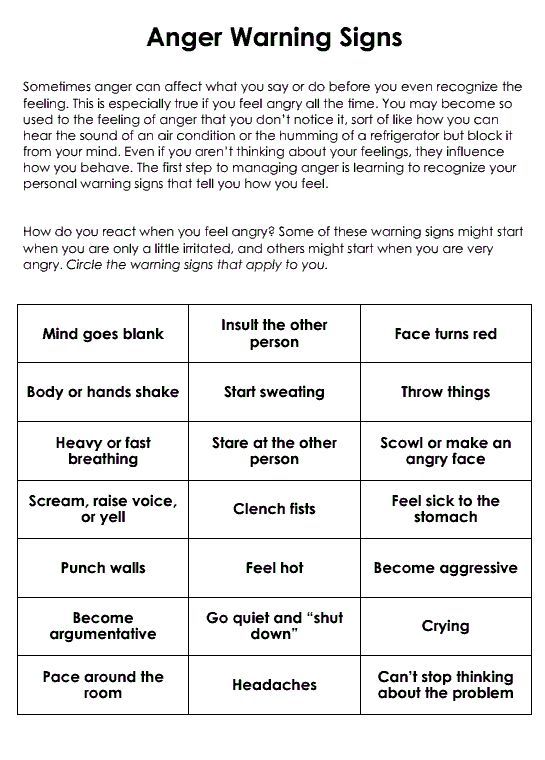 Suppressed anger causes stress.
Suppressed anger causes stress.
The more we delve into our feelings, talking to ourselves, the more our resentment grows. As a result, we are more inflamed
No need to close yourself in a room alone and sob into the pillow, winding yourself up even more. But do not rush at each other with accusations on the first occasion. Take a break, think about the situation and talk about your emotions to your partner.
“You don't have to keep everything to yourself. This is especially true for women, says Ann Campbell. - After all, the more we delve into our feelings, talking to ourselves, the more our resentment grows. As a result, instead of extinguishing the outbreak, we become more inflamed.”
The art of getting angry
Fortunately, you can learn to control your emotions. And if you find it difficult to control your anger or find the right words, don't panic: the more you practice, the better you will get.
“First, learn to pause to calm down,” advises Mark Pistorio. - Then try to calmly formulate what annoys you, worries or does not suit you. We also need to consider factors that make us more emotional and irritable: stress, fatigue, anxiety.”
Because of them, we take it out on the children who always disobey us, or on the driver who blocked the exit from the yard. Consider if they are the real cause of your condition. And will you be better off if you lash out at them?
Anger becomes a problem if it:
- is inadequate to the situation;
- outbreaks are too frequent and affect quality of life;
- caused by something that happened a long time ago;
- results in physical abuse, harm to health or property, yours or others;
- damages work;
- destroys relationships with loved ones;
- makes you feel weak and sick.
In all these cases, it is imperative to discuss the problem with a specialist.



